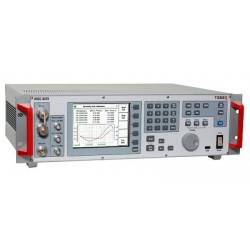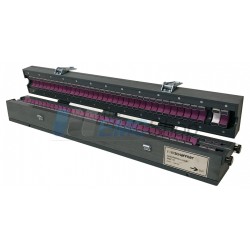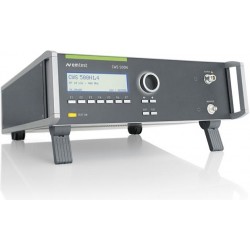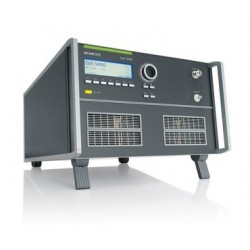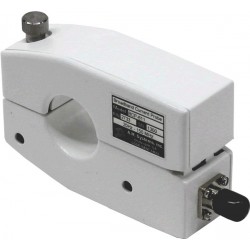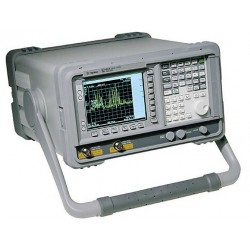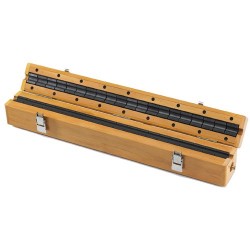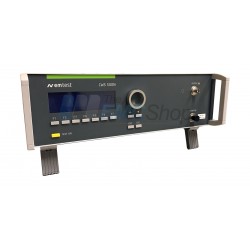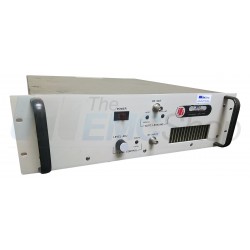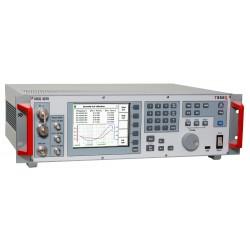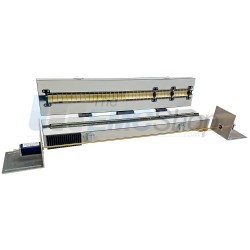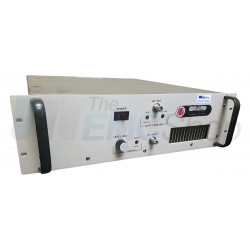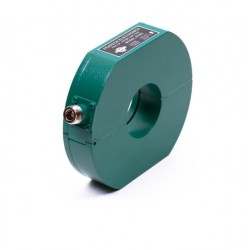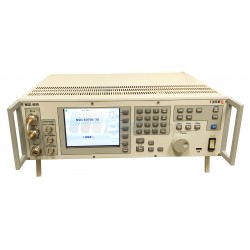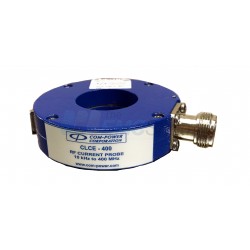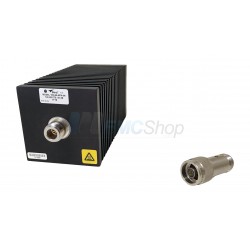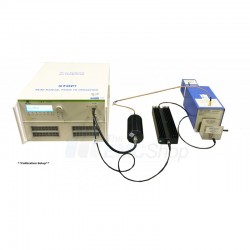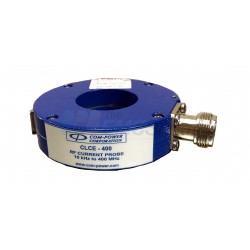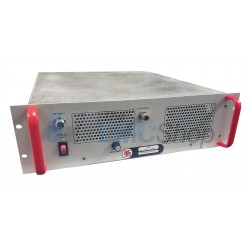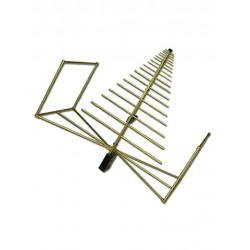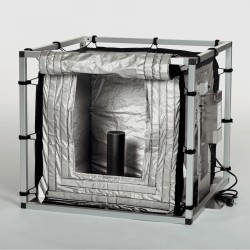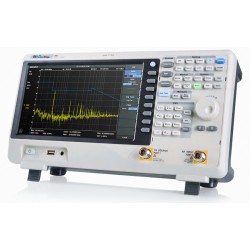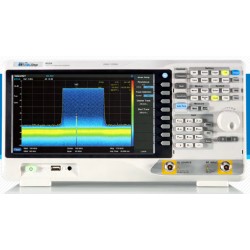No products
Product successfully added to your shopping cart
There are 0 items in your cart. There is 1 item in your cart.
Com-Power Absorbing Clamps
- EMC Test Equipment
- Transient Generators
- RF Power Amplifiers
- DC - 300 kHz RF Amplifiers
- 10 kHz - 250 MHz RF Amplifiers
- 10 kHz - 400 MHz RF Amplifiers
- 10 kHz - 1 GHz RF Amplifiers
- 80 MHz - 1 GHz RF Amplifiers
- 1 GHz - 2 GHz RF Amplifiers
- 700 MHz - 4.2 GHz RF Amplifiers
- 1 GHz - 6 GHz RF Amplifiers
- 2 GHz - 8 GHz RF Amplifiers
- 6 GHz - 18 GHz RF Amplifiers
- 18 GHz - 40 GHz RF Amplifiers
- Pulse Amplifiers
- RF Field Strength Probes & Meters
- RF Conducted Immunity
- EMC Receivers/EMI Analyzers
- EMC Antennas
- Coupling Decoupling Networks (CDN's)
- Line Impedance Stabilization Networks (LISN's)
- RF Test Equipment
- EMC Probes
- EMC Measurement & Equipment Software
- Power Supplies
- Electrical Safety Analyzers
- High Precision Laboratory Power Analyzers & Meters
- Anechoic Chambers
- Over-the-Air (OTA) Test Chambers
- EMI RF Shielded Tent Enclosures
- RF Shielded Rooms
- EMC Absorber
- Positioning Equipment
- EMC/EMI Test Setup
- GTEM Cells / TEM Cells
- Reverberation Chambers
- Used RF Anechoic Chambers
- EMC Chamber Filters
- EMC Chamber Shielding Gaskets
- RF Shielded Doors
- Anechoic Chamber Accessories
- Fully Anechoic (FAR) Test Chambers
- Manufacturers
- 3ctest
- AE Techron
- AH Systems
- Amplifier Research
- Boonton
- Com-Power
- Diamond Engineering
- EM Test (Ametek CTS)
- EMC Partner
- EMC Test Design
- Empower High Power RF Amplifiers
- ETS-lindgren
- Log Periodic Dipole Array Antenna
- Near Field Probe Sets
- Double Ridge Horn Antennas
- Biconical Antennas
- Quad Ridge Horn Antennas
- Electric Field Probes
- GTEM's
- Positioners & Tripods
- Loop Antennas
- Biconilog Antennas
- LISN's (Line Impedance Stabilization Network)
- Shielded Enclosures/Rooms
- Monopole Antennas
- Field Generating Antennas
- Fischer Custom Communications
- Haefely Hipotronics
- Haefely EFT/Burst Immunity Test Systems
- Haefely Surge Combination Wave Test Systems
- Haefely Surge Damped Oscillating Wave Test Systems
- Haefely Electrostatic Discharge Test Systems (ESD)
- Haefely Surge Ring Wave Test Systems
- Haefely Surge Telecom Wave Test Systems
- Haefely Magnetic Field Test Systems
- Haefely CDN's (Coupling/Decoupling Networks)
- IFI Amplifiers
- Keysight (Agilent)
- MVG - Microwave Vision Group
- PMM / Narda
- Rohde & Schwarz RF Test Equipment
- Rohde & Schwarz Broadband RF Amplifiers
- Rohde & Schwarz Spectrum Analyzers
- Rohde & Schwarz Compliant EMI Test Receivers
- Rohde & Schwarz Isotropic RF Probes
- Rohde & Schwarz RF Signal Generators
- Rohde & Schwarz RF Switches
- Rohde & Schwarz Oscilloscopes
- Rohde & Schwarz RF Power Meters
- Rohde & Schwarz RF Power Sensors
- Schloder
- Schwarzbeck Mess-Elektronik
- Schwarzbeck Antennas
- Schwarzbeck Automotive Antennas
- Schwarzbeck Broadband Horn Antennas
- Schwarzbeck Biconical Antennas
- Schwarzbeck Logarithmic Periodic Broadband Antennas
- Schwarzbeck Stacked Log-Periodic Broadband Antennas
- Schwarzbeck Biconic Log-Periodic Antennas
- Schwarzbeck Dipole Antennas
- Schwarzbeck Rod Antennas
- Schwarbeck Antenna Baluns / Holders
- Schwarzbeck LISN Line Impedance Stabilisation Networks
- Schwarbeck Decoupling & Absorbing Clamps
- Schwarzbeck Field Probes
- Schwarzbeck Helmholtz Coils
- Schwarzbeck Antenna Masts
- Schwarzbeck Coupling/Decoupling Networks
- Schwarzbeck Antennas
- Solar Electronics
- Teseq (Schaffner)
- Teseq Automotive Transient Generators
- Teseq RF Test Equipment
- Teseq EFT/Burst Generators
- Teseq RF Immunity Generators
- Teseq ESD Guns
- Teseq Surge Generators
- Teseq Harmonics & Flicker Solutions
- Teseq Dips, Interrupts & Variations Equipment
- Teseq Ring Wave Generators
- Teseq Oscillatory Waves Generators
- Teseq Absorbing Clamps / Ferrite Tube
- Teseq EMC Antennas
- Teseq Current Probes
- Teseq Coupling Networks
- Thermo Keytek
- Vicreate
- Compliance Standards
- International (IEC/EN)
- EN/IEC 61000-3-2
- EN/IEC 61000-3-3
- IEC 61000-3-11
- IEC / EN 610000-3-12
- EN/IEC 61000-4-2
- EN/IEC 61000-4-3
- EN/IEC 61000-4-4
- EN/IEC 61000-4-5
- EN/IEC 61000-4-6
- EN/IEC 61000-4-7
- EN/IEC 61000-4-8
- EN/IEC 61000-4-9
- EN/IEC 61000-4-10
- EN/IEC 61000-4-11
- EN/IEC 61000-4-12
- EN/IEC 61000-4-16
- EN/IEC 61000-4-18
- EN/IEC 61000-4-19
- EN/IEC 61000-4-20
- EN/IEC 61000-4-21
- EN/IEC 61000-4-29
- EN/IEC 61000-4-31
- IEC 61000-4-39
- EN/IEC 62132
- SEMI F47 Voltage Sag Immunity
- Product Standards
- Military & Aerospace Standards
- Automotive EMC Standards
- CISPR Standards
- Telecom Testing
- ANSI/IEEE Standards
- FCC Part 15
- FCC Part 30
- International (IEC/EN)
- Application/Test Type
- Radiated Immunity
- Bulk Current Injection Testing
- RF Emissions Testing
- Conducted Immunity
- Conducted Emissions
- Antenna Pattern Measurement
- CE Mark Testing
- Intentional Radiator Testing
- Pulsed HIRF Radar
- Over-the-Air (OTA) Testing
- 5G Test Solutions
- Automotive EMC
- SAR Measurement Equipment
- Radiated Emissions
- Battery Simulator Test Equipment
- Services
- Clearance
Viewed products
-

Com-Power CLA-150 32mm...
30 MHz - 1 GHz Frequency Range RF...
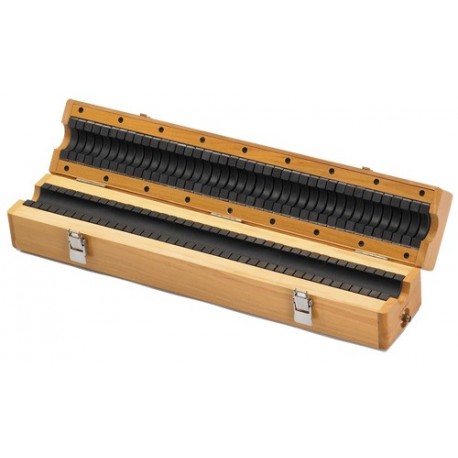 View larger
View larger Com-Power CLA-150 32mm Absorbing Clamp
New
- 30 MHz - 1 GHz Frequency Range
- RF Disturbance power measuring, according to CISPR 14 (EN 55014)
- Aperture Diameter: 34.9 mm (1.37 inches)
- Insetion Loss: 14 dB to 21 dB
- Typically in stock with calibration and 3 Year warranty
Typically In Stock
Specifications
| Frequency Range | 30 MHz to 1000 MHz |
| Standards Met | CISPR 14 |
| RF Connector | BNC (f), 50 Ohms |
| Application/Test Type | Measurement of direct field strength from EUT supply cables |
| Aperture | 34.9 mm (1.37 inches) |
| Min. site attenuation | 14 dB to 21 dB |
| Clamp factor (CF) | -3 dB to +4 dB |
| Isolated lines under test | Power supply lines and other connecting lines |
| Max. Cable Diameter | 32 mm (1.26 inches) |
| Dimensions | 627 x 114 x 165 mm (24.7 x .4.5 x 6.5 inches) |
| Weight | 21 lbs (9.5 Kg) |
Test Equipment Description
The CLA-050 and CLA-150 Absorbing Clamps are designed to measure disturbance power on power input lines as well as other auxiliary I/O lines. The measurement of disturbance power is a method for determination of radiated disturbance, and an alternative to the measurement of disturbance field strength on an Open Area Test Site (OATS) or Semi-Anechoic Chamber (SAC).
Construction
The CLA-050 and CLA-150 consist of a broadband current transformer (30 MHz to 1 GHz) and two sets of ferrite rings. The line(s) under test are routed through the current transformer and one of the set of ferrite rings.
The ferrite rings act as a broadband RF power absorber and isolates the current transformer from disturbances on the mains and establishes asymmetric (common-mode) impedance. Each of these ferrites are split into two halves, with one half mounted in the absorbing clamp base, and the other half mounted in the hinged top cover. When the clamp is open, the line(s) under test are easily laid into place inside the bottom halves of the ferrites. When the clamp is closed, the two halves meet, forming a ring around the line(s) under test.
The coaxial line connecting the current transformer to the clamp’s output connector is routed through the second set of ferrite ring which decouples the current transformer from the asymmetric (common-mode) impedance of the receiver.
The aperture size of the clamp dictates the maximum diameter of cable or cables bundle which can be placed under test. The CLA-050 has an aperture size of 0.5” & CLA-150 has an aperture size of 1.4”, which is the main difference between the two clamps.
The chassis is designed to be extremely durable, making it an ideal choice for daily use in laboratory environments, both indoors and outdoors. The handle at the top and wheels at the bottom facilitate easy movement of the clamp along the length of the line(s) under test.
Application
Testing with Absorbing clamp is simplified compared to traditional methods of measuring radiated disturbances. It does not require a anechoic/ semi-anechoic chamber or a calibrated site.
The use of an absorbing clamp for disturbance power measurements is required for certain types of devices per CISPR 13 [EN 55013], CISPR 32 [EN 55032] and CISPR 14 [EN 55014]. It can also be used to measure screening attenuation of RF coaxial cables.
Measurement
Measurement of disturbance power is done in a 50 ohm system. The power (P) measured using the absorbing clamp in a 50 ohm system can be expressed as
10 log(P) dB(pW) = 10 log (V 2/50) + IL
= 20 log (V) - 10 log (50) +IL
= 20 log (V) - 17 + IL
P = Power (watts)
V= Voltage measured at output of clamp
IL = Insertion loss of clamp
The clamp factor provided in the datasheet with each clamp accounts for the [-17 + IL]
So the Corrected reading for Power in dB(pW) equals
Meter Reading (dBuV) + Clamp Factor (dBpW/μV) + [Cable Loss]
Calibration
Each absorbing clamp is individually calibrated per CISPR 16-1-3 with NIST traceability. The calibration data and certificate is provided. Recognized ISO 17025 accredited calibration is also available upon request.



